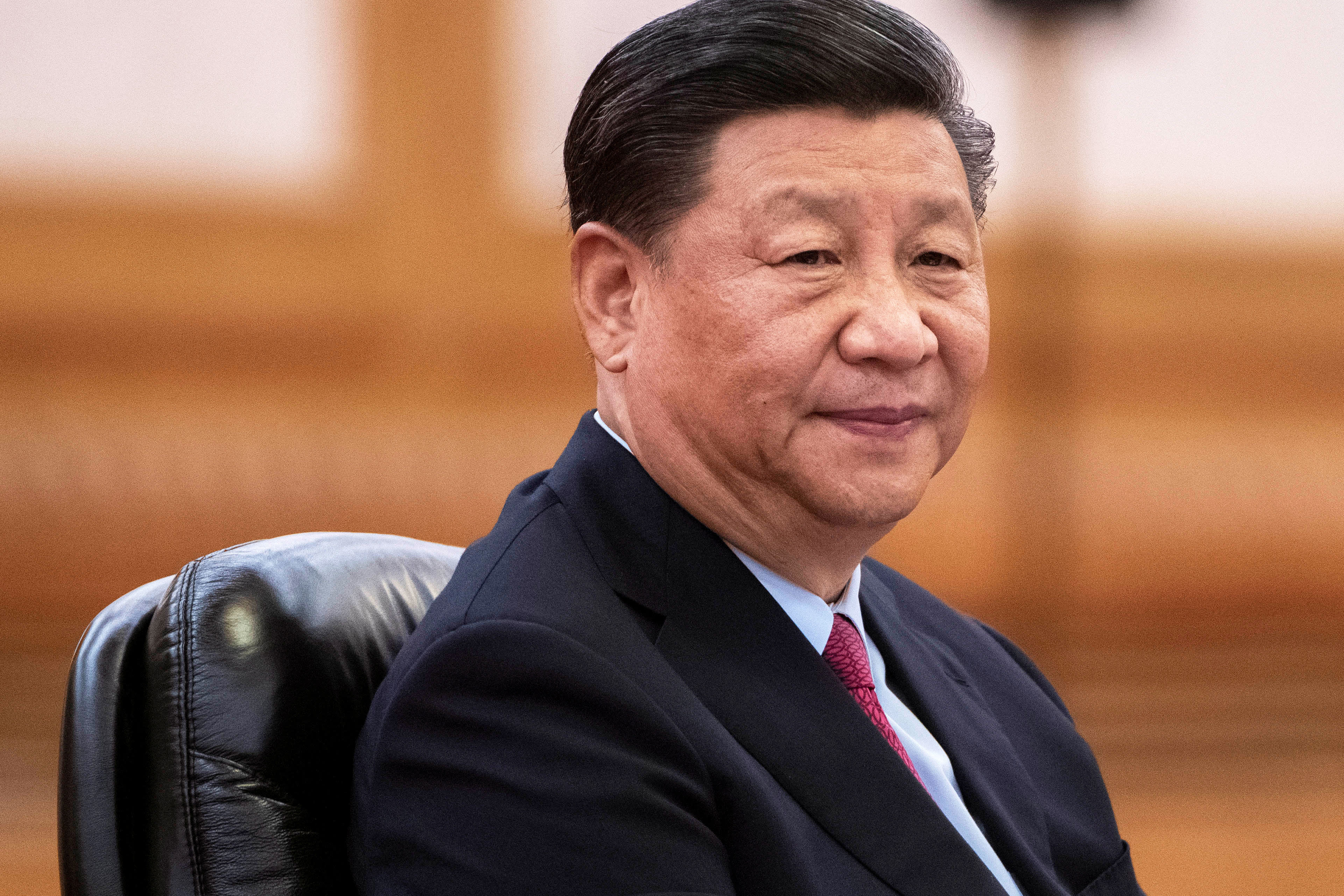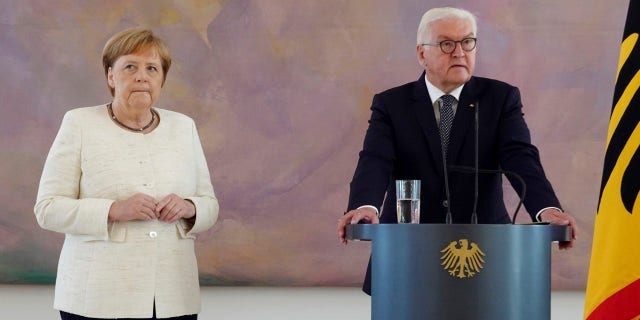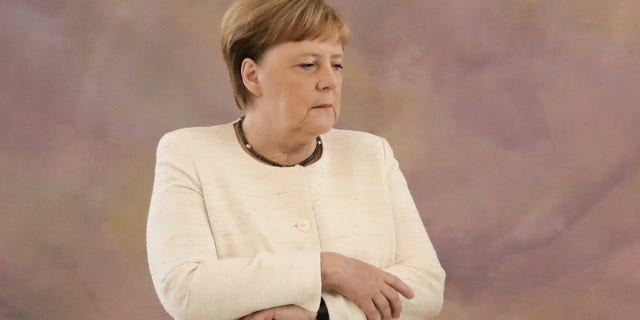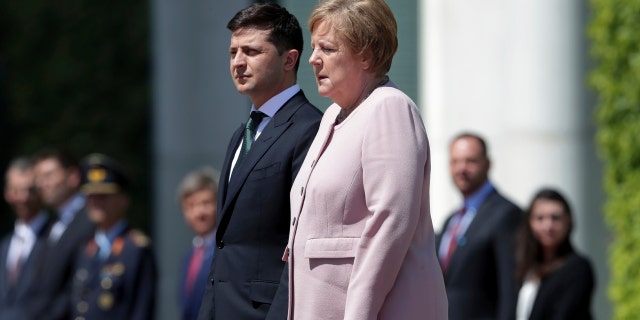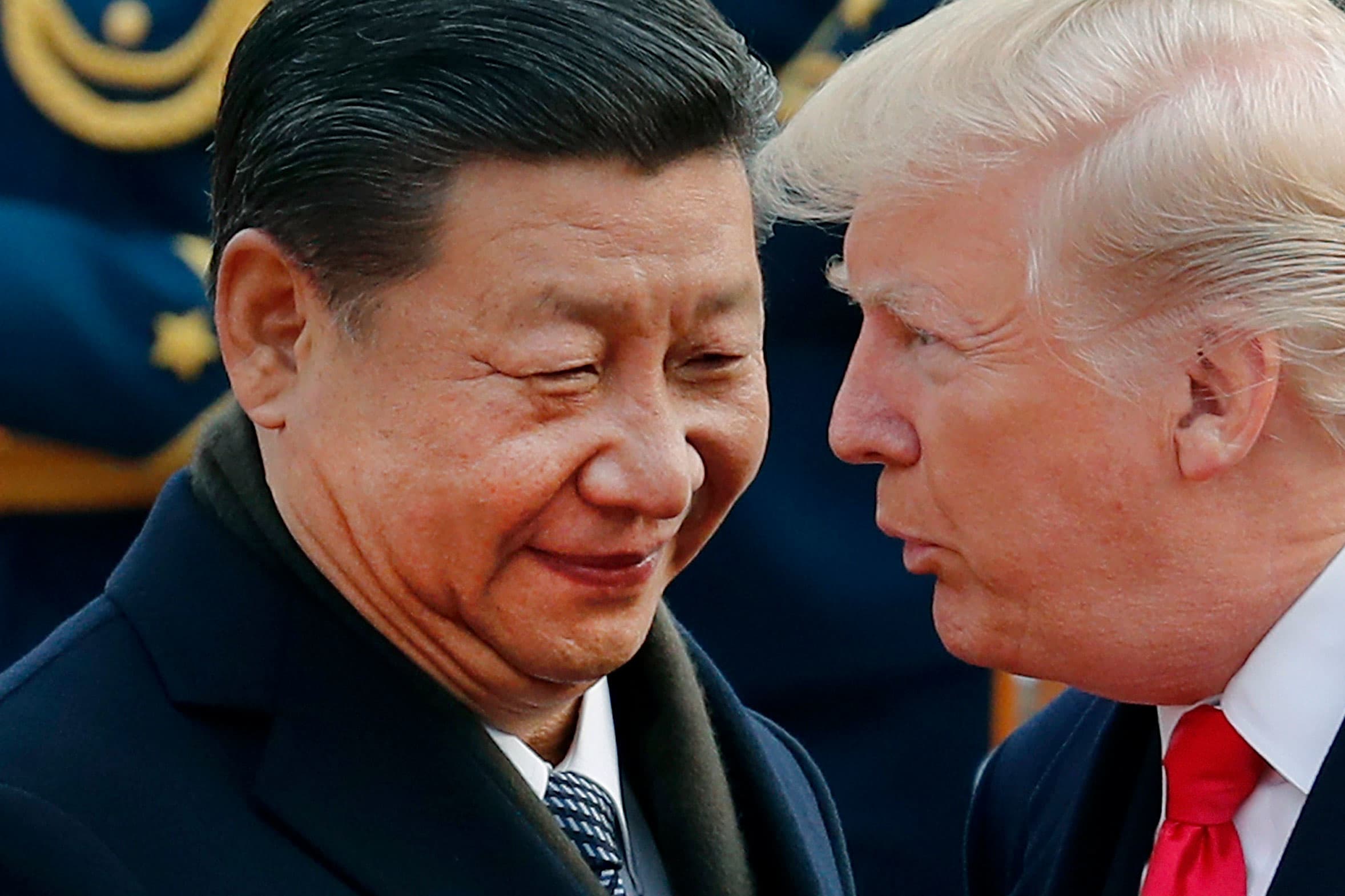Iran's parliamentary speaker has warned the United States against violating the country's borders, cautioning such a move would draw a "stronger" reaction than the downing of a US drone a week ago.
In comments carried by Iran's semiofficial Tasnim news agency on Thursday, Speaker Ali Larijani said the shootdown of the unmanned aerial vehicle was "a good experience for them to avoid any aggression".
"Iran's reaction will be stronger if they repeat their mistake of violating our borders," Larijani said.
Tehran said the Global Hawk surveillance drone was in its territory when it was shot down by a surface-to-air missile on June 20. Washington rebuffed that claim, saying the aircraft was in international airspace over the Strait of Hormuz when it was hit.
US President Donald Trump ordered retaliatory attacks on Iranian installations over the incident - which marked the first direct Iranian-claimed attack on US assets amid an escalating crisis between the two powers - before calling them off at the last minute.
Trump later said too many people would have died had the attacks gone ahead.
Also on Thursday, Iran's Foreign Minister Mohammad Javad Zarif warned that Trump was mistaken in thinking a war between their countries would not last long.
"'Short war' with Iran is an illusion," Zarif wrote on Twitter a day after Trump said he did not want a war with Iran but warned that if fighting did break out, it "wouldn't last very long".
War of words
The war of words between Washington and Tehran has since escalated, with Trump this week threatening Iran's "obliteration" after President Hassan Rouhani called the White House's actions "mentally retarded".
On Wednesday, Trump said any war between Iran and the US would be swift, but reiterated his desire to avoid a military confrontation.
The US leader has been a frequent critic of Iran's leaders, accusing them of sowing disorder and unrest in the Middle East.
|
|
|
INSIDE STORY: Will the US attack Iran? (25:51)
|
Tehran, meanwhile, has accused Trump's administration of "economic terrorism" and "psychological warfare" over Washington's application of punishing sanctions after Trump withdrew from an historic nuclear deal with world powers.
Under the 2015 agreement, Iran agreed to scale back its nuclear programme in exchange for the lifting of economic sanctions.
Tehran said earlier this month it would breach the limit of its stockpile of low-enriched uranium mandated under the deal by Thursday, and threatened to take further steps on July 7 to increase uranium enrichment purity levels over the 3.67 percent limit set in the agreement.
Citing unnamed diplomats, the Reuters agency reported Iran was still short of the cap on enriched uranium, however, but was on course to reach that limit at the weekend.
On Wednesday, the UN nuclear watchdog verified Iran had roughly 200kg of low-enriched uranium, below the deal's 202.8kg limit, three diplomats who follow the agency's work told Reuters.
US-European talks
Tehran's announced plan to breach the deal was widely interpreted as a bid to ramp up pressure on the agreement's remaining signatories - the United Kingdom, France, Germany, China and Russia - to deliver protection from the US sanctions for Iran's faltering economy.
Iran's European partners are expected to announce a multimillion-dollar credit line at a summit in the Austria's capital, Vienna, on Friday.
The credit line is aimed at keeping alive economic ties between European governments and Tehran by helping a special mechanism establish a route for trade between Iran and the West, unnamed officials told the Wall Street Journal on Thursday.
Amid European efforts to salvage the deal, US officials also launched a diplomatic campaign to rally their allies in the face of the escalating crisis.
US Secretary of State Mike Pompeo jetted to the Middle East on Monday to meet leaders of Saudi Arabia and the United Arab Emirates, Gulf Arab states that favour the toughest possible line against Iran.
On Thursday, the US special representative for Iran, Brian Hook, will meet British, German and French officials in Paris for talks.
Hook is expected to receive a frosty reception from Washington's European allies, who support the nuclear deal and believe Trump's decision to quit the accord was a mistake that has strengthened Iran's hardline faction, weakened its pragmatists, and raised the prospect of open conflict in the Middle East.
Since quitting the deal, Trump has deployed more military assets to the region along with thousands of additional troops.
The moves coincided with a series of mysterious attacks on oil assets in the Gulf that Washington has blamed on Tehran, which has in turn repeatedly denied responsibility for the explosions.
Let's block ads! (Why?)
https://www.aljazeera.com/news/2019/06/iran-warns-repeating-mistake-violating-borders-190627054156202.html
2019-06-27 14:30:00Z
52780321775417
